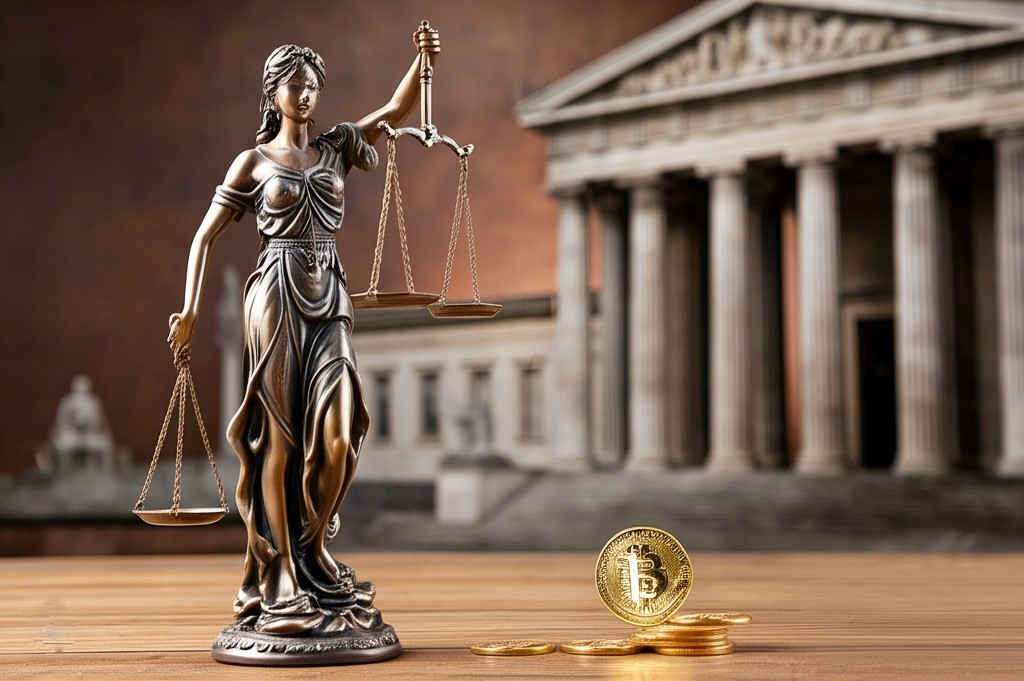In a landmark move to address potential abuses of power, the Fifth Amendment Integrity Restoration Act of 2023, or FAIR Act, seeks to safeguard Bitcoin holders from the threat of civil asset forfeiture—a process where the government can seize an individual’s assets without any criminal charge. As the U.S. government gears up to use civil asset forfeiture in building its Strategic Bitcoin Reserve, the FAIR Act stands as a crucial piece of legislation designed to protect citizens, particularly those in the Bitcoin community, from unjust asset seizures.
What Is Civil Asset Forfeiture?
Civil asset forfeiture allows the government to take possession of assets it believes are connected to illegal activities, even if the individual hasn’t been charged or convicted of any crime. While this practice is controversial, it has grown increasingly problematic, with concerns about law enforcement agencies misusing it to bolster their budgets. According to the Institute for Justice, civil asset forfeiture is “one of the gravest abuses of power” in the United States today.
Bitcoin’s growing popularity and its financial value make it a prime target for such practices. In recent years, law enforcement has seized Bitcoin from individuals who were unaware of its criminal associations or its involvement in illegal activities, such as money laundering or sanction evasion. The FAIR Act aims to curb these actions by introducing significant changes to the way asset forfeiture is conducted.
Key Provisions of the FAIR Act
- Raising the Burden of Proof
The FAIR Act would raise the legal bar for asset forfeiture, requiring the government to provide “clear and convincing evidence” rather than merely a “preponderance of evidence.” This increases the burden of proof on law enforcement and ensures that property owners have more protection before their assets can be seized. - Connection Between Asset and Crime
One of the most important provisions of the FAIR Act is that it mandates law enforcement to prove a substantial connection between the seized property and the alleged crime. For Bitcoin, this means that authorities must establish that the owner knowingly used their Bitcoin to facilitate a crime, or that they were “willfully blind” to the illegal use of their property. - Protecting Innocent Property Owners
This provision is particularly relevant for Bitcoin holders. Under current laws, the government can seize Bitcoin, even if the holder wasn’t aware of the coin’s illicit past. The FAIR Act would ensure that only individuals who had knowledge of or consented to the criminal use of their Bitcoin could have their property seized. - Legal Representation for Financially Struggling Owners
The FAIR Act would also guarantee that individuals who cannot afford legal representation are provided with counsel, especially in cases where the cost of obtaining an attorney exceeds the value of the seized property. This is a critical reform, as many individuals are unable to contest asset forfeiture due to the reverse burden of proof currently in place. Under the current system, individuals must prove their innocence to retrieve their property, which is a stark departure from the fundamental principle that the government must prove guilt.

A Call for Accountability and Reform
Senators Booker and Rand Paul, who co-sponsored the FAIR Act, have been vocal in denouncing civil asset forfeiture. They argue that law enforcement’s ability to seize property without due process undermines the rights of American citizens. Senator Booker has stated, “Under this system, police can keep cash, cars, and even homes based on mere suspicion of a crime,” emphasizing how this practice turns losses into profits for law enforcement agencies.
Senator Rand Paul echoed these concerns, asserting, “The government should never have the power to seize a person’s property without due process… The FAIR Act directly addresses these injustices and is a critical step toward restoring fairness and accountability.”
Bitcoin and the Government’s Strategic Reserve
The FAIR Act’s protections are particularly timely as the U.S. government has signaled plans to use civil asset forfeiture to build its Strategic Bitcoin Reserve, which could result in the seizure of Bitcoin from individuals without any criminal charge. The passage of the FAIR Act is essential to ensure that such a reserve is not built on the backs of innocent Bitcoin holders who are unfairly targeted.
The Bigger Picture
If the government’s plans for a Bitcoin reserve proceed without reforms like those proposed in the FAIR Act, the strategic accumulation of Bitcoin could become a dangerous precedent for the abuse of civil asset forfeiture laws. The FAIR Act ensures that this reserve, and the future of Bitcoin ownership in the U.S., is built on a foundation of fairness, transparency, and due process.
A Necessary Step Forward
As the Bitcoin space grows and government interest in digital assets rises, protecting individual rights becomes even more crucial. The FAIR Act is a vital step in the right direction for ensuring that citizens’ assets, including Bitcoin, remain secure from government overreach. The passage of this bill would safeguard not only Bitcoin holders but also preserve the integrity of property rights in the digital age.
This legislation offers a much-needed balance between government interests and individual freedoms—an important safeguard in an increasingly digital world. For those invested in Bitcoin, or any digital asset, the FAIR Act may be the line of defense against unnecessary government intervention and unwarranted asset forfeiture.
